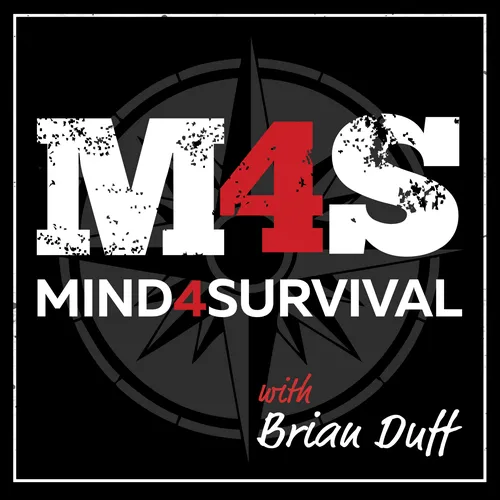How to Manage Stress and Anxiety in Preparedness
- Author
- [email protected] (Brian Duff)
- Published
- Thu 23 Mar 2023
- Episode Link
- https://mind4survival.com/how-to-manage-stress-and-anxiety-in-preparedness/
Managing stress and anxiety is an important preparedness topic that is often overlooked. It's ignored because preparing for future struggles is often rooted in worry about future events. And, that worry causes us to place our preparedness ahead of all else.
However, that's not to say that preparedness is not an excellent course of action to follow. As we all know, accidents, disasters, and bad times happen. When they happen, those who prepare are more likely to be part of the solution rather than part of the problem.
That said, people concerned about future problems can experience the adverse effects of long-term stress and anxiety. Those effects can impact both physical and mental health and, in so doing, decrease a person's ability to overcome difficult situations. In other words, not including efforts to manage stress and anxiety can reduce our overall preparedness capability.
My Battle with Stress, Anxiety, and Worry (Post-Traumatic Stress)
As someone who has served in high-stress environments and faced the challenges of PTS, I understand firsthand the importance of mental resilience. There were times when my anxiety seemed so intense that I came close to taking my life. Fortunately, I found the help I needed, and then, with the right coping strategies, I found ways to manage my stress effectively. So much so that today, I feel more happy and alive than I can ever remember feeling before. So much so that now, I use my experiences to help others who are struggling in the battle with the overwhelm of past trauma.
Stress, Anxiety, and Worry
Worry is defined as anxiety and uncertainty over actual or potential problems. If that doesn't sum up the prepper mindset, including mine, I don't know what does. The bottom line is that worry is something that preparedness-minded people do. If we didn't worry, we wouldn't be as inclined to prepare as many of us do.
On the flip side, people who don't worry are less inclined to prepare. Think about it: how many people have you seen who do not worry about the future and still spend their time and money getting prepped? Typically, people who don't worry about future uncertainties are the people we say have their heads buried in the sand.
Ultimately, because we are concerned with the future, we, the preparedness-minded people of the world, tend to carry more stress. It's that stress that can have an adverse impact on a person's readiness.
The Adverse Effects of Stress and Anxiety
Here's a list of the adverse effects of stress and anxiety on our health and wellness:
Central Nervous System
Headaches
Dizziness
Depression
Weight gain
Cardiovascular System
Rapid heart rate
Palpitations
Chest pain
Heart disease
High blood pressure
Coronary events
Excretory and Digestive Systems
Stomachaches
Nausea
Diarrhea
Digestive issues
Loss of appetite can also occur
Irritable bowel syndrome (IBS)
Managing Stress and Anxiety in Preparedness
Stress and anxiety are everyday experiences that everyone goes through at some point in their lives. While it is normal to feel stressed or anxious, managing these emotions effectively to avoid their harmful effects on our mental and physical health is essential. Here are some ways to manage stress and anxiety:
Create a Routine: Establish a daily schedule that includes time for relaxation and self-care.
Seek support: It is important to consider seeking support from loved ones or a mental health professional if you are experiencing high levels of stress or anxiety. Talking to someone can help to reduce feelings of isolation and provide a sense of perspective.
